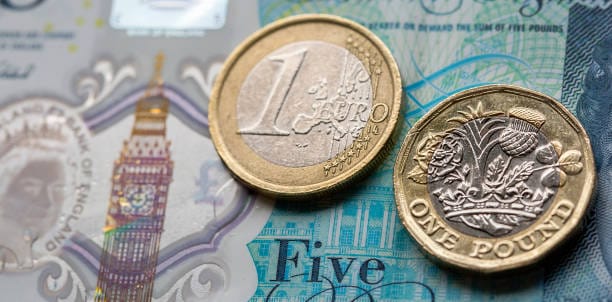GBP/EUR exchange rate midweek update: pound soars to 22-month high against euro
The pound euro (GBP/EUR) exchange rate jumped to its highest level since August 2022 on the back of political uncertainty in France that weighed on the euro.

(10/06/2024 to 12/06/2024)
Monday
The pound euro (GBP/EUR) exchange rate surged through the 1.18 resistance level as the weekend concluded. The pair’s sharp rise was prompted by European Central Bank (ECB) monetary policy and the announcement of a snap election in France, which combined to undermine the euro.
The ECB became the second major central bank to cut interest rates following the Bank of Canada (BoC)’s announcement on Wednesday.
Over the weekend, French President Emmanuel Macron unexpectedly announced a general election on 30 June and 7 July amid gains amongst far-right political parties across the EU. The prospect of potential political upheaval generated headwinds for the single currency.
The pound lacked a clear direction due to a lack of market-influencing UK data.
Tuesday
The pound overcame an initial fall in the wake of downbeat UK unemployment data to add nearly 0.3% against the euro and reach 1.19 – a 22-month high.
The jobless rate in the three months to April rose to 4.4% from 4.3%, the highest reading since the three months to September 2021. Economists had forecast the rate to remain static.
The number of people in employment has dropped by 207,000 since the end of 2023, while unemployment has increased by 190,000, the jobs report showed.
Speaking during a lecture at the University of Cyprus in Nicosia, ECB chief economist Philip Lane said that the central bank is not committing to any further policy easing after last week's rate cut. He added that any further dovish action will depend on incoming data and decisions will be taken meeting-by-meeting.
His hawkish comments were overshadowed by Eurosceptic gains in EU Parliament elections and French President Macron's announcement of a snap election the previous day, allowing the pound to surge.
Wednesday
The pound held firm near a multi-month high around 1.186 despite GDP data showing lackluster UK growth.
Britain's economy stalled in April after emerging from recession in the first quarter. The zero growth followed an expansion of 0.4% in March – its weakest economic performance in four months.
The pound’s downward potential was cushioned by waning Bank of England (BoE) interest rate cut speculations amid political uncertainty and sticky inflation.
The euro was subdued following data showing sticky German inflation that increased in May due to higher services prices. Consumer prices, harmonised to compare with other EU countries, warmed 2.8% on the year in May. They had risen by 2.4% year-on-year in April.
Looking ahead
A lack of influential UK data could leave the pound to trade on external factors.
The Eurozone’s industrial production index hits the headlines on Thursday. Economists expect it to ease from 0.6% in April to 0.2%, which could undermine the euro.
A flurry of speeches from ECB policymakers on Friday will be closely monitored by investors for clues about future rate cuts.
